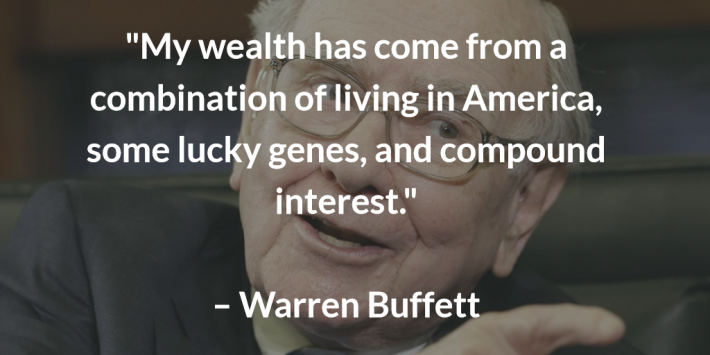The compound effect is a simple principle, with a huge reward, but many people fail to apply it.
In my own words, I would say that the compound effect is the action of building on top of what you’ve already built. Hardy gives great example in his book about running. A person wants to be able to run half a marathon, i.e 13.1 miles, but they cant even run 400 meters. He says, alright start by running as far as you can, and then walk the rest until you pass the 1 mile mark. Do this consistently until you are able to run the full mile. Afterwards do the same thing for 2 miles. Easy and simple, all it requires is consistency. “The magic is not in the complexity of the task; the magic is in the doing of simple things repeatedly.”
Recently I saw this TED talk, about a man who started with a red paperclip and was able to trade it up to a house. Maybe he didn’t know about the existence of this principle, but he applied it. He traded it for a strange pen, and then for a strange doorknob, and then for a camping stove. I guess you understand the idea.
This is what compound effect can achieve. My favorite application of this principle is in habits. More specifically, how certain habits have a slow and steady effect in your life. Say you read a book on WWII history every month. At the end of a year you will have read twelve books on this topic and knowledge will build up in your head, eventually you will become a near expert on the topic.
People like Warren Buffet have backed this principle. He himself applies it to finance. He explains it as compound interest. A very clear example is as follows: “In simple terms, compound interest means that you begin to earn interest on the interest you receive, which multiplies your money at an accelerating rate. In other words, if you have $500 and earn 10% in interest, you have $550. Then, if you earn 10% of interest on that, you end up with $605.” You can find further information about this here.

So now, I have given you enough reason to give it a try. But how?
It really is simple; “Small, smart choices + consistency + time = Radical difference”. I believe most people will struggle with consistency. Many people might take on to big of a task which will consistency incredibly hard. Going back to my earlier example of reading a book a month; I believe it is pretty attainable. Lets do the math; an average book has 250 words per page, and the average book is 400 pages. Say you read at a pace of 250 words per minute, and you read for 20 minutes every night before falling asleep, it would take you 20 days to finish the book. Considering that some nights you may just want to watch tv instead of reading, this goal is achievable and fairly easy. It has got to be easy. Imagine you want to read a book a week, you would need to read almost an hour everyday. This is hard, not everyone has enough time to do it. Maybe you can build up to this. Read a book a month for three months, then make it every three weeks, then two and finally you will be reading a book every week.
Of course this is just an example, but it is just the application of the principle. I hope you found this post useful, and if you have any thoughts you might want to share with me, please do so down in the comment section.